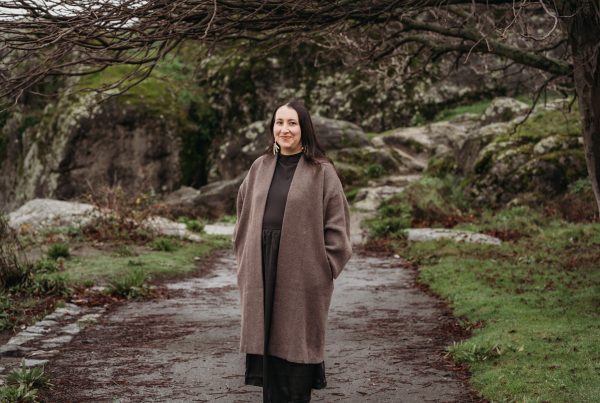What’s better than a beautiful, sunny, summer day? A court update on a beautiful, sunny, summer day! The legal team for Gitxaała have shared with us the facta (the written arguments) from the Intervenors and we’re here to give you the update.
First up, what is an Intervenor? An intervenor is a party who is not directly involved in the dispute. Typically intervenors are organizations, rather than individuals. In the cases RAVEN supports, the criteria under which an organization can apply to be an intervenor requires an they demonstrate that the case raises an issue of public law in which the proposed intervenor has an indirect interest, and that it can bring a unique perspective that will be of assistance to the court in making their decision.
So, who are the Intervenors in Gitxaała’s appeal and what are they arguing? In no particular order they are:
BCCLA and First Nations Leaders
A group of the British Columbia Civil Liberties Association (BCCLA), First Nations Summit, Union of B.C. Indian Chiefs, and B.C. Assembly of First Nations acting together. The BCCLA, a civil rights organization, and the 3 First Nations leadership organizations collaborated with one another to intervene together. Organizations will sometimes do this to share the burden of the work.
This group focused their arguments on s. 8.1(3) of the Interpretation Act, which requires courts to construe every law as being consistent with the United Nations Declaration on the Rights of Indigenous Peoples (UNDRIP). They argue that, like all provisions, s. 8.1(3) must be interpreted by applying the “modern principle” of statutory interpretation. That principle says that the words of the provision must be read in context and in their ordinary sense, and in a way which keeps it in harmony with three things: the scheme of the Act, the object of the Act, and the intention of Parliament.
They also argue the judge did not consider the provisions of the Declaration relevant to the issues advanced by Gitxaała and Ehattesaht, and that the judge did not consider whether the Mineral Tenure Act (MTA) can even be construed consistently with the Declaration. Rather, the court seemed to have assumed that the MTA could be consistent with UNDRIP and the group argues this was an error of law.
Cheona Metals Inc
Cheona Metals Inc. intervened in support of the Nations and is a mining company in support of UNDRIP. They made two arguments about UNDRIP’s status and how it shapes B.C. law.
First, because Canada adopted UNDRIP without qualification, and Canada and B.C. legislatively affirmed its domestic application, the presumption of conformity applies to UNDRIP, meaning all domestic laws must be interpreted in a way to conform to it.
Second, the rights expressed in UNDRIP implicated in the mining regime are directly adopted into the domestic common law as binding customary international law, without legislative action.
B.C. Human Rights Commission
The BC Human Rights Commission (BCHRC) is an independent officer of the Legislative Assembly with a mandate to protect and promote human rights in B.C., including B.C.’s compliance with its international human rights obligations.
BCHRC argues that while the court correctly identified B.C.’s Act incorporating UNDRIP (DRIPA) as a human rights statute that must be interpreted in a fulsome way, and the court failed to actually do that. The incorporation of UNDRIP into the laws of B.C. means that the articles of UNDRIP must be given legal effect in B.C. and must be enforceable.
In addition, Canadian courts recognize that human rights statutes occupy an elevated position in the legal landscape. Therefore it is more important than other laws with the exception the Constitution, and where it conflicts with other laws, it must be followed.
Association for Mineral Exploration B.C.
Association for Mineral Exploration B.C. (AMEBC) is the lead association for the mineral exploration and development industry in B.C.. The AMEBC argues that the court properly interpreted s. 2 and 3. of DRIPA.
The AMEBC argues that the decision of the court below is consistent with the presumption of conformity. In particular, they argue there was no requirement to depart from the Constitution’s framework for s. 35 rights recognition, and that the duty to consult framework is consistent with UNDRIP because the standard imposed on governments by the duty to consult is at least as high as the standard imposed by UNDRIP.
Secondly, they argue that UNDRIP is only an interpretive aid and has not been implemented in Canadian law.
What’s next?
Next, the parties, the Nations and the Crown, will have the opportunity to review these factums,and prepare their replies. They will also continue to move forward with their preparation for their hearing. We continue to hope the hearing will be scheduled in late 2024, or early 2025.
You can learn more about the appeal and donate to support Gitxaała here: Gitxaała Nation: Protect Banks Island – RAVEN (raventrust.com)






